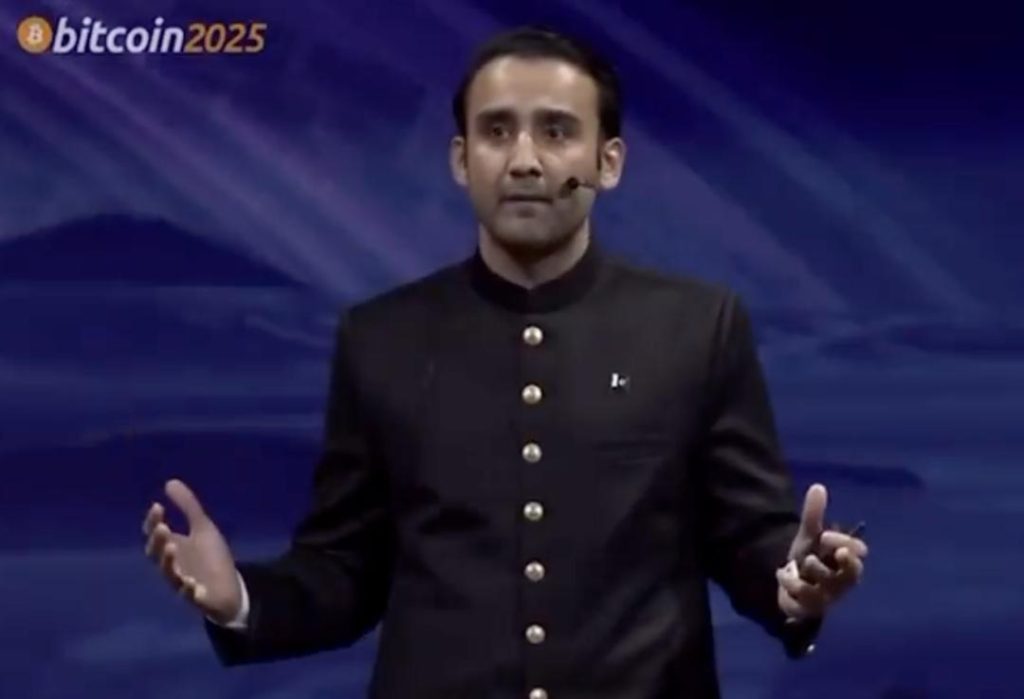
Pak & Bitcoin suffer from bad PR: CEO of Pak crypto body linked to Trump-backed firm
The world of cryptocurrency has often been shrouded in controversy, and Pakistan and Bitcoin are no exception. Recently, the CEO of Pakistan Crypto Council, Bilal bin Saqib, made a statement that has sent shockwaves through the industry. In an interview, Saqib claimed that both Pakistan and Bitcoin have “suffered from bad PR” and that the country is being misrepresented by the media.
However, Saqib’s claims come at a time when the Pakistan cryptocurrency watchdog, which he is a part of, is facing scrutiny over its deal with World Liberty Financial, a company backed by US President Donald Trump. The deal has raised eyebrows, and the US Senate is now investigating the matter.
In the interview, Saqib sought to whitewash Pakistan’s image by claiming that the country is being misrepresented. He stated that people see Pakistan through the lens of conflict, which is not an accurate representation of the country. He emphasized that Pakistan is a technologically advanced nation with a thriving startup ecosystem, which is often overlooked by the media.
However, Saqib’s comments have been met with skepticism by many in the industry. Critics argue that Pakistan’s reputation has been marred by its poor track record on issues such as money laundering and terrorist financing. The country has been accused of failing to implement adequate regulations to prevent these activities, which has led to a lack of trust in its financial systems.
The controversy surrounding Pakistan’s cryptocurrency watchdog and its deal with World Liberty Financial is just the latest in a long line of scandals to hit the country. In 2019, the country’s central bank banned cryptocurrencies, citing concerns over their potential use for illegal activities. However, the ban was met with widespread criticism from the cryptocurrency community, who argued that it was a draconian measure that would stifle innovation.
Despite the controversy, Saqib remains optimistic about the future of cryptocurrency in Pakistan. He believes that the country has the potential to become a hub for cryptocurrency innovation and has urged the government to create a more favorable regulatory environment.
However, not everyone agrees with Saqib’s assessment. Critics argue that the country’s lack of transparency and poor regulatory environment make it an unattractive destination for investors. They also point out that the country’s central bank has a history of taking draconian measures to control the flow of capital, which has led to a lack of trust in the financial system.
The controversy surrounding Pakistan and Bitcoin is just the latest in a long line of PR issues to plague the cryptocurrency industry. In recent years, the industry has been plagued by scandals, from insider trading to money laundering. As a result, many investors have become increasingly cautious, and the industry has struggled to regain its footing.
In conclusion, the controversy surrounding Pakistan and Bitcoin is a stark reminder of the challenges facing the cryptocurrency industry. While Saqib’s claims that both Pakistan and Bitcoin have “suffered from bad PR” may be true, it is clear that the country’s reputation has been marred by its poor track record on issues such as money laundering and terrorist financing. Until these issues are addressed, it is unlikely that the country will be able to shake off its reputation and attract more investors.






